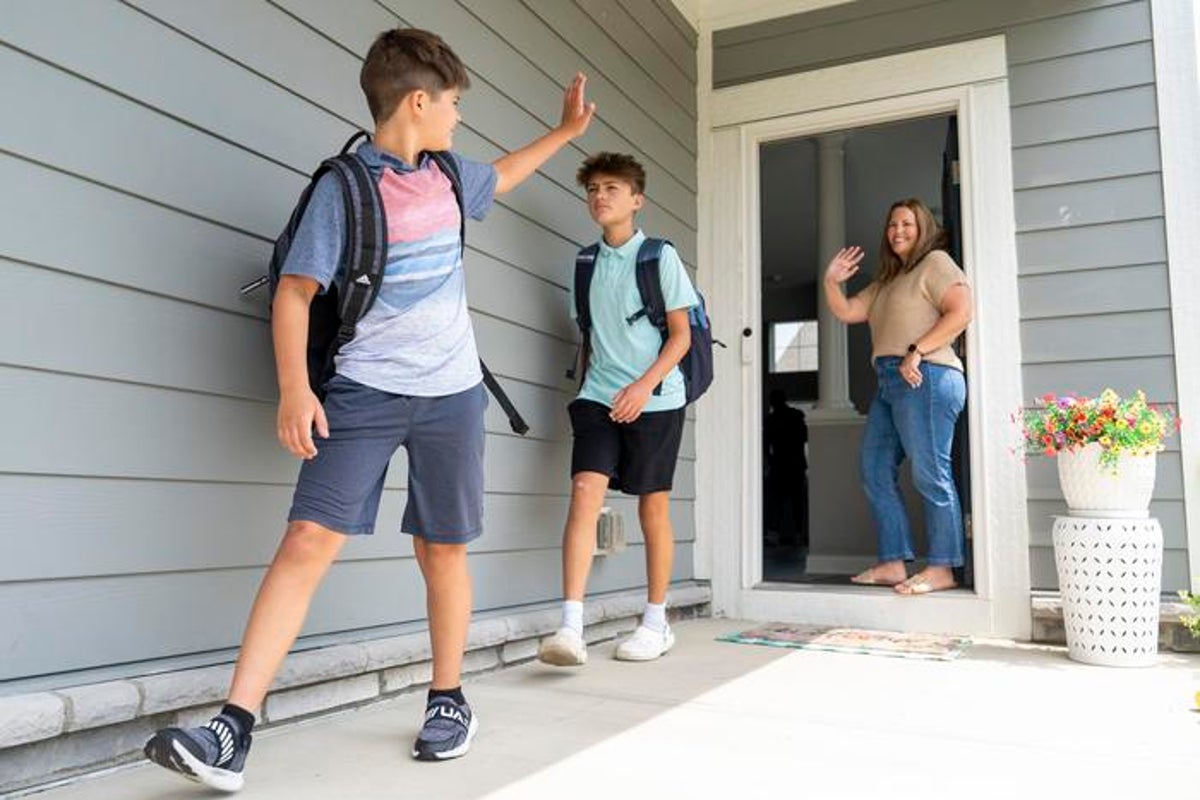Anxiety and fear are among the main reasons that kids in America skipped school last year.
In a new survey of more than 1,000 parents across the U.S., nearly a third said their child missed more than a week of school due to mental health reasons.
Roughly two out of five students said they did not feel physically well enough to attend classes and one in five said they were too exhausted to go to school, the parents told pollsters from the Nationwide Children’s Hospital.
Since the pandemic, the number of kids who have missed 10 percent or more of days in the school year has nearly doubled, rising to more than 14 million in 2021-2022, according to the American Academy of Pediatrics. That’s more than two weeks out of a typical 180-day school year. AAP says absenteeism is linked to poor academic performance and sets kids behind their peers.
Along with anxiety, children cite a range of reasons for missing school including learning differences, perfectionism, bullying, grief, toxic authority figures, and feeling unsafe at school.
Kelley McChristy, a mother of two boys in Columbus, Ohio, has been affected by school avoidance.
“It’s important to recognize that there are a lot of physical symptoms that manifest in kids that are really related to mental health,” McChristy said in a statement.
“When a child says, ‘I’m sick, I’m not feeling well,’ and you can’t find a reason for it, it could be related to anxiety.”
The survey, published Tuesday, highlights what is known as “school avoidance” or “school refusal” – when a student experiences distress about going to school on a regular basis.
It may be a sign of emotional distress and is considered to be a symptom associated with other mental health disorders, according to the School Avoidance Alliance and National Institutes of Health. Those disorders include social anxiety disorder, generalized anxiety, depression, and post-traumatic stress disorder.
As many as 28 percent of children experience school avoidance and its most common between the ages of 10 and 13, and for those transitioning to different schools.
Teenagers are also worrying about school gun violence, separate research and surveys have shown. School shootings dropped to 330 incidents last year but were only slightly below the all-time high of 349 in 2023, according to the K-12 School Shooting Database. Guns remain a leading cause of death for children and teenagers, according to Johns Hopkins University.
Understanding why kids don’t want to attend school is key to addressing the issue, experts say.
“I see this clinically all the time. Kids feel anxious. They don’t want to go. They’re in distress. And as parents, we want to protect them. We don’t want our kids to be in distress, and so the parent decides to keep them home,” Dr. Ariana Hoet, executive clinical director of The Kids Mental Health Foundation and a pediatric psychologist at Nationwide Children’s, said.
“The problem with that is the more we avoid things that make us anxious, the bigger the anxiety gets. And so, a parent feels like they’re doing the right thing by giving their child a mental health day or keeping them home, but really that’s just going to make the anxiety grow,” she added.
So, what should parents do? Treatment options include talk therapy that may help a child face their fears and what’s making them anxious about going to school. Medications and parent-teacher interventions may also be necessary, the NIH says. Parents can also talk to others who’ve experienced similar challenges with their children.
“I have been shocked by the amount of people that I’ve talked to whose children are going through the same thing,” McChristy said.

